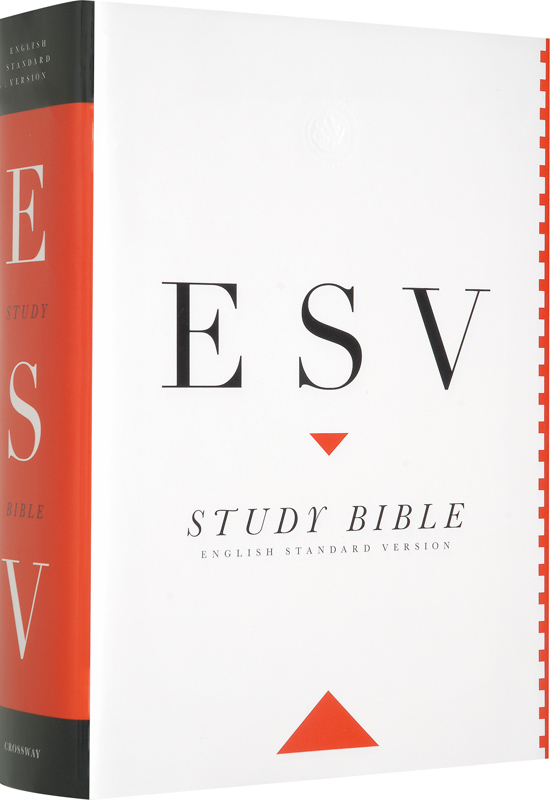The publisher of the English Standard Version (ESV) Bible has reversed a highly discussed decision last month that the current text would remain unchanged in future editions.
Crossway, a Christian nonprofit publisher established in 1938, said the reason for making permanent final changes added in 2016 were to aid in reading, memorization and liturgy, in a way similar to usage of the King James Version, first translated in 1611 and unchanged since 1769.
A month later, however, Crossway President and CEO Lane Dennis said the decision was a “mistake” and apologized for any concern it had caused for readers.
“Our goal at Crossway remains as strong as ever to serve future generations with a stable ESV text,” said Dennis, who has a Ph.D. in religion from Northwestern University. “But the means to that goal, we now see, is not to establish a permanent text but rather to allow for ongoing periodic updating of the text to reflect the realities of biblical scholarship such as textual discoveries or changes in English over time.”
The ESV, ranked by the Evangelical Christian Publishers Association the fourth bestselling Bible translation behind the New International Version, New King James and the traditional KJV, was first published in 2001. A team of more than 50 translation review scholars set out to produce a new “word-for-word” Bible translation “characterized by precision and literary excellence” in the tradition of the Tyndale New Testament, the first version printed in English published in 1526, and the KJV, authorized by King James I of England in 1604 which became the standard for English-speaking Protestants and had a profound influence on literature over the past 400 years.
 Crossway reached another milestone in 2008 with publication of the ESV Study Bible, a 2,750-page tome endorsed by the Council for Biblical Manhood and Womanhood as “unapologetically complementarian” that went on to become the first Bible ever named the Evangelical Christian Publishers Association “Christian Book of the Year.”
Crossway reached another milestone in 2008 with publication of the ESV Study Bible, a 2,750-page tome endorsed by the Council for Biblical Manhood and Womanhood as “unapologetically complementarian” that went on to become the first Bible ever named the Evangelical Christian Publishers Association “Christian Book of the Year.”
The ESV Study Bible advances the notion that husbands and wives are created equally in God’s image but with distinct and complementary roles in the church and home through extensive footnotes similar to the Scofield Reference Bible which popularized an end-times theology called dispensationalism early in the 20th century.
An ESV annotation on Ephesians 5:21 rebuts “egalitarian philosophies” such as the idea of “mutual submission” that works both ways between husbands and wives.
“Paul’s commands regarding the roles of husbands and wives do not merely reflect the culture of his day but present God’s ideal for all marriages at all times,” explains a footnote commenting on Ephesians 5:32.
One of the minor changes in 29 verses adopted by the Crossway board of directors and the ESV Translation Oversight Committee in 2016 seeks to clarify the complementarian intent of Genesis 3:16. It was changed from “Your desire shall be for your husband, and he shall rule over you” to “Your desire shall be contrary to your husband, but he shall rule over you.”
The idea, explained in an ESV Study Bible footnote, is that “there will be an ongoing struggle between the woman and the man for leadership in the marriage relationship” resulting from Adam’s sin in the Garden of Eden.
“The leadership role of the husband and the complementary relationship between husband and wife that were ordained by God before the fall now have been deeply damaged and distorted by sin,” the ESV editors explain. “[O]ne of the most tragic results of Adam and Eve’s rebellion against God is an ongoing, damaging conflict between husband and wife in marriage, driven by sinful rebellion against their God-given roles and responsibilities in marriage.”
Members of the ESV Translation Oversight Committee include Wayne Grudem, a research professor in theology and biblical studies at Phoenix Seminary who co-founded the Council on Biblical Manhood and Womanhood and co-edited with John Piper Recovering Biblical Manhood and Womanhood: A Response to Evangelical Feminism, named “Book of the Year” for 1993 by Christianity Today.
Paul House, associate dean and professor of divinity and Old Testament studies at Beeson Divinity School in Birmingham, Ala., serves on the Translation Oversight Committee as ESV Old Testament associate chair. House, a graduate of Southwest Baptist University with master of divinity and Ph.D. degrees from Southern Baptist Theological Seminary, taught three years at Southern Seminary in the 1990s before moving onto Trinity Episcopal School for Ministry and Wheaton College, joining the faculty at Beeson in 2004.
Dennis said future updates to the ESV text “will be minimal and infrequent, but fidelity to Scripture requires that we remain open in principle to such changes, as the Crossway Board of Directors and the ESV Translation Oversight Committee see fit in years ahead.”
Previous story:
ESV gets final revision as ‘unchanged’ word of God, publisher says
